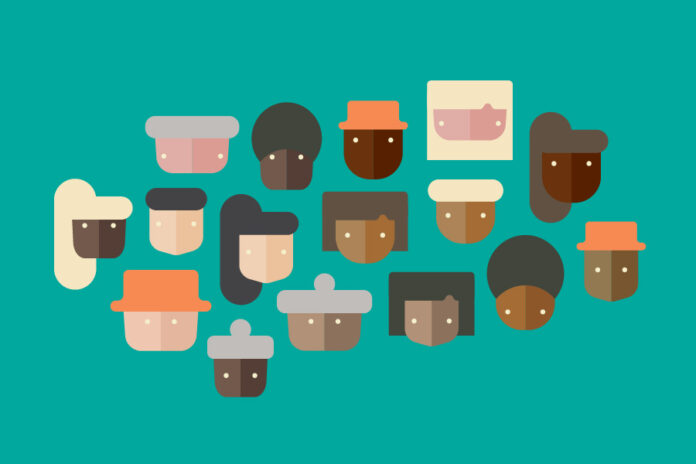
Identity politics can often pressure people to adopt assigned beliefs
 With recent political developments, identity politics play a large role in how the public interprets and discusses key issues. Regular people, not just politicians, have categories that they believe they belong in — just as they might list credentials and skills for a job interview. In the United States in particular, we see various identities cited as determining a person’s core values and political positions. If a person defines themselves as poor and feels threatened by police because they purportedly target people by their national origin or skin color, then it’s easy to determine what that person’s views on other issues are. Or at least that’s what we think and what we often assume of other people. We assume how one identifies themselves will determine much of how they think, feel or act.
With recent political developments, identity politics play a large role in how the public interprets and discusses key issues. Regular people, not just politicians, have categories that they believe they belong in — just as they might list credentials and skills for a job interview. In the United States in particular, we see various identities cited as determining a person’s core values and political positions. If a person defines themselves as poor and feels threatened by police because they purportedly target people by their national origin or skin color, then it’s easy to determine what that person’s views on other issues are. Or at least that’s what we think and what we often assume of other people. We assume how one identifies themselves will determine much of how they think, feel or act.
The main issue with this strain of identity politics is that it influences how people see themselves and puts them in a position where they must conform to what is expected for that identity group. The clearest example is the social pressure for minorities to vote Democratic in any and all forms and that the Republican Party is full of racist, sexist, bigoted homophobes. This pressure makes it harder for a person — especially a minority — in a place like Davis to even identify as supportive of the president or in favor of the Proposition 8 ban on gay marriage since they’ll likely face severe backlash, scorn and utter condemnation. This is because American society doesn’t take into account many factors that may influence what a person believes in politics and often judges people based on simplified expectations of what that person probably identifies as. Minorities in the United States hold diverse political views on topics like marriage and drugs, but overarching societal pressure pushes for at least a hollow commitment to progressive politics.
The common narrative in this country is that people who are not white often suffer common injustices that can be countered through unity among races. That is why we hear of cases in which people like George Takei argue that Japanese internment during World War II and the current Trump travel bans are reminiscent of the same evil and that we must all stand to fight issues like racism, bigotry and Islamophobia. But, considering the positions of Asians in the United States, many are at a halfway point between being classified as an oppressed minority and people who hold just as many advantages as their white counterparts. Asians are placed in an “us versus them” situation — and whether they act or remain silent, the resulting criticisms range from “white supremacy apologist” to “social justice warrior.” Simplified notions of advantages and disadvantages for Asians show the uninformed nature of the general public. The situation for Asians in the United States varies, but that obviously doesn’t sound like as clear of a narrative as people want to preach.
Although not picking on anyone in particular, Asians in America are often expected to also adopt a pan-Asian identity, to be united with other Asians and fight against injustice together. Identity politics lump people into the category of “Asian,” an all-Asian identity that pervades the United States and the rest of the West. If you grew up with other Asians, there’s often a social pressure for Asians to band together due to perceived similarities in beliefs and physical characteristics, in direct contrast to non-Asians and other minorities.
In reality, there are plenty of divisions within the Asian community that do not just exist because of ethnic or national differences, but also due to linguistic or cultural distinctions. Pan-Asian unity is not necessarily a façade, but its pervasiveness in the West is a successful attempt at socially engineering a sense of brotherhood among often culturally divergent Asian peoples. Even so, it’s definitely difficult to tell some hardcore Chinese nationalists that the Japanese are fellow Asian friends who face similar disadvantages in the United States when the memory of Japanese atrocities on Chinese civilians during World War II remains strong in political discourse in China and the diaspora.
Having all of that in mind, we find that identity politics affects not just governmental decision-making, but everyday life. Whether people like it or not, identity politics often reinforces the stereotypes for particular identities. People who hold certain identities are expected to believe certain things — or else people expect something is off-kilter. People naturally seek the truth, and the truth often doesn’t require the sentence starter “As a ______, I believe ______.” The right answers are not always the ones prescribed for you based on your identity, but the ones that stem from your own individual conclusions.
Written by: Justin Chau — jtchau@ucdavis.edu
Disclaimer: The views and opinions expressed by individual columnists belong to the columnists alone and do not necessarily indicate the views and opinions held by The California Aggie.





